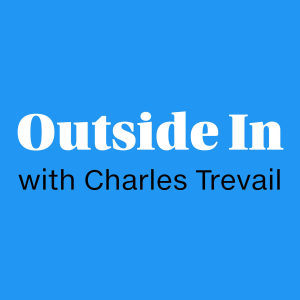
Outside In with Charles Trevail
Podcasts
Outside In explores how the world is changing and how business is changing with it. Host Charles Trevail interviews executives, journalists, authors, and thinkers, exploring the customer-centric strategies and philosophies that are working successfully inside companies, and the consumer trends, industry disruptions, and cultural forces that are influencing business from the outside.
Location:
United States
Genres:
Podcasts
Description:
Outside In explores how the world is changing and how business is changing with it. Host Charles Trevail interviews executives, journalists, authors, and thinkers, exploring the customer-centric strategies and philosophies that are working successfully inside companies, and the consumer trends, industry disruptions, and cultural forces that are influencing business from the outside.
Twitter:
@CSpaceGlobal
Language:
English
Website:
https://www.cspace.com/
Email:
marketing@cspace.com
Russell Glass, CEO, Headspace Health: Meditation and Mental Health Support for the Masses
Duration:00:26:35
Dan Lewis, Co-Founder & CEO, Convoy: A Digital Transformation is Happening in Trucking
Duration:00:28:01
Anthony Capuano, CEO, Marriott International: The Resilience of Travel and Tourism
Duration:00:27:24
Dan Shapero, COO, LinkedIn: Making Sense of the Future of Work
Duration:00:29:53
Amanda Hesser, Co-CEO, Food52: Food connects us to everything
Duration:00:21:27
Arvind Krishna, CEO, IBM: A new era for technology and innovation
Duration:00:29:08
Tekedra Mawakana, co-CEO, Waymo: Autonomously driven vehicles are here
Duration:00:23:37
Francesco Starace, CEO, Enel: A Renewable Future is Inevitable
Duration:00:24:03
David Rodin: Ethics is Now a Defining Aspect of Business
Duration:00:26:47
Patricia Cohen, The New York Times: At a global turning point
Duration:00:26:37
Dimitris Psillakis, CEO, Mercedes-Benz USA: A Luxury Brand Goes Electric
Duration:00:22:25
Ranjay Gulati, Harvard Business School: Finding Deep Purpose
Duration:00:25:43
Jonathan Webb, CEO, AppHarvest: AgTech Farming for Our Planet’s Future
Duration:00:24:52
Rebecca Minkoff: Fearless in Fashion
Duration:00:28:01
Corie Barry, CEO, Best Buy: Leading an Organization Through Uncertainty and Change
Duration:00:35:59
Mel Selcher, CMO, LinkedIn: The Changing World of Work
Duration:00:30:26
Rafat Ali, CEO, Skift: Where is Travel Going Next?
Duration:00:27:01
Michael E. Mann: What’s at Stake in our “New Climate War” and How to Win the Fight
Duration:00:31:24
Oliver Bäte, CEO, Allianz: Protecting our Future Amid Rising Global Risks
Duration:00:30:21
Mary Barra, Chair and CEO, General Motors: On The Road to an All-Electric Future
Duration:00:24:02
